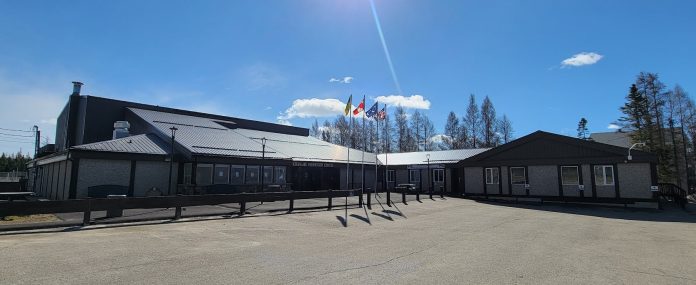The Kikinahk Friendship Centre welcomed representatives from Aboriginal Friendship Centres of Saskatchewan (AFCS) for an information sharing luncheon as part of AFCS’S Aboriginal Life Promotion Framework, the Safe Space Strategy.
Safe Spaces is in its design stage and, when developed, is about “supporting safe Spaces for Indigenous Women and 2SLGBTQ+ people.
The strategy will be part of the framework, which is an “Indigenous wholistic approach to wellbeing. Individuals, organizations, communities and more can use the framework to visually identify gats and wee where to put a focus for balance as with medicine wheel teachings,” quoted from the AFCS brochure.
The four quadrants of the medicine wheel are: Spiritual Child, individual and cultural in the East; Emotional Youth, family, social, in the South; Physical Adult, community, economic in the West; and Intellectual Elder Nation and Political in the North.
The Safe Space Project is an AFCS project with intent to “increase its ability to prevent and address Gender-based violence against Indigenous Women and involves collaboration with AFCS across the province to engage Indigenous Women and 2SLGBTQ+ people “to share their experiences, which will inform a province-wide Safe Space Strategy.
Goal for the project include creating a document for Friendship Centres to use as a guide and support; to develop awareness campaigns and empowerment workshops and to Capacity build to create a province-wide network.
Dawn Bear-Demkiw, program coordinator and Morgana Machea, program manager, both for the Centre for Indigenous Women, Two Spirit and Gender Diversity have been touring AFCS centres across the province meeting with people as the first stage of the Strategy development process.
AFCS has 10 centres across the province, some known as Friendship Centres (La Loche, Isle a la Crosse; Buffalo Narrows, Northwest in Meadow Lake; Kikinahk, Qu”Appelle Valley; and Newo Yotina in Regina) and others as Indian and Métis Friendship Centres (North Battleford; Prince Albert; and Saskatoon).
“Yorkton is going through some tough times and we’re trying to support them coming back, and the community is very mobilized, so we might have an 11th,” Machea said.
While they have a particular focus, “we’ve been reaching out to all populations. You know, everybody’s interested about safe spaces,” she said.
“What I like about this project is that it’s not about creating new solutions, it’s about honouring the solutions that are already happening at each Friendship Centre.”
This first phase involves getting input from all the communities and engaging with the centre populations and others so “we can learn from each other. I want to make sure that Qu’Appelle Valley knows what Kikinahk is doing for Safe Spaces we wo can learn from each other.”
Machea hopes this can be used to, not only increase safety, but create a document with programing ideas for spiritual, cultural, training, protocols and guides to enhance knowledge as well as safety, which is why an adaptation of the Medicine Wheel is being used and the Framework.
“All the quadrants of the Medicine Wheel, that’s how we frame our conversations. When community comes in, we ask them, how do we create this space for Indigenous Women and 2SLGVTQ+?. And they come in and raise their questions. Sometimes their questions are more like training.”
Aileen Searson is the Safe Spaces coordinator for Kikinahk and the document that is being put together, she sees as something “we can use that to have a guideline for when we’re creating events to make sure there is space for events for Queer people in the community and Indigenous women.”


